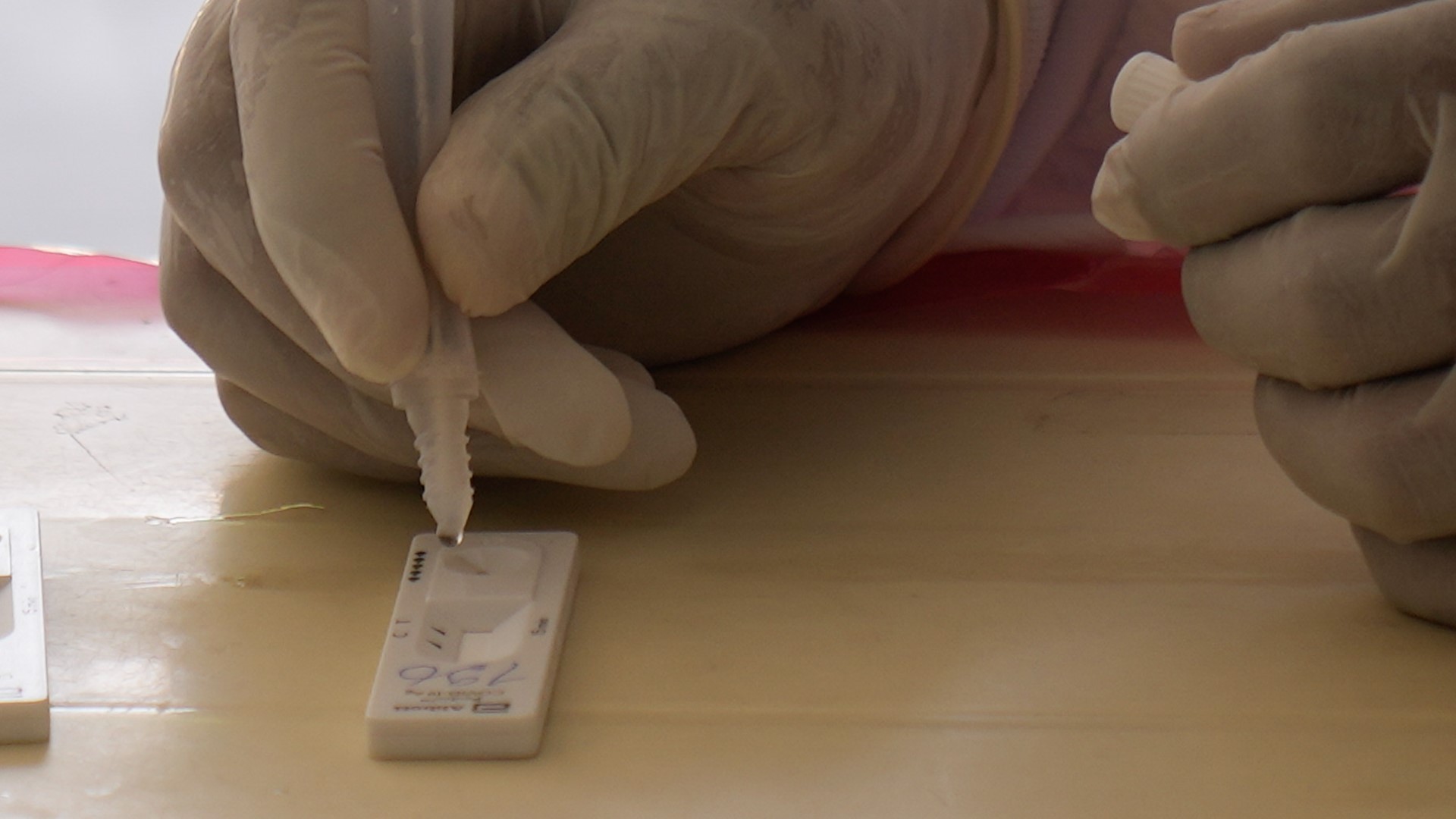ATLANTA — Rapid tests are a quick and easy way to find out if you’ve contracted COVID-19, but some tests may not detect variants of the virus.
“The chances are a little bit more that those kinds of tests will be will not detect the new variant,” Georgia Tech's Dr. M.G. Finn said.
Recently, the FDA warned that several rapid tests failed to detect the Omicron variant, informing people that they didn’t have COVID when they did.
“The presence of mutations in the SARS-CoV-2 virus in a patient sample can potentially impact test performance,” the FDA says on its website.
Here’s why those rapid tests might detect one variant but not another.
First, let’s look at the difference between rapid test and the PCR tests that take a deeper dive and require a longer wait to get results. Dr. Finn said the PCR tests look for genetic material found inside the virus. It’s like cracking the shell of an egg to explore the yoke.
Rapid tests, also known as antigen tests, seek and grab ahold of specific proteins around the outside shell of the virus. Variants can alter those proteins. If it changes the specific protein the test was designed for, you can get false negatives.
“If I grab onto this coffee cup, if the coffee cup were to change shape, become a mug and my hands were too small, I might not be able to grab it as well,” Dr. Finn said. “That's in essence what a change in the variant does to an antigen test.”
Manufacturers are using the latest information about variants to makes changes to the tests.
“And so the new tests are constantly being evaluated,” Dr. Finn added. “But it takes time to propagate through the commercial system to make them available.”
He said rapid tests can sometimes pick up traces of the virus when you’re no longer infectious and added that you should use the test as a guide and understand they’re not perfect.

